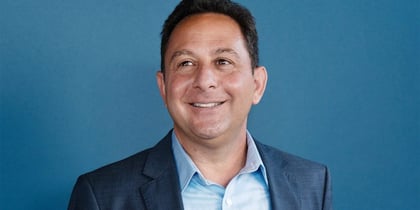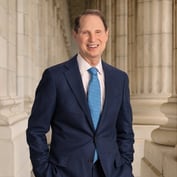What You Need to Know
- President Biden is expected to propose a 43.4% capital gains tax rate for investors earnings more than $1 million.
- Such a tax hike — more than double the current rate — could affect portfolios, charitable giving, tax planning and more.
- It could inspire more wealthy investors in high-tax states to relocate.
On Wednesday, President Joe Biden announced his American Families Plan, which includes not only a proposed increase in the top marginal tax rate for those earning more than $400,000 but also a capital gains tax increase for investors earning more than $1 million a year.
If the plan is enacted, the top marginal tax rate would increase from 37% to 39.6% and the top capital gains rate would be even higher, 43.4%, up from 23.8%. That top capital gains tax rate, comprising a 39.6% capital gains rate and the 3.8% Medicare surtax, would affect many ultra-high net worth clients of financial advisors.
The White House has said the increase would affect only about 0.3%-0.5% of all U.S. taxpayers.
ThinkAdvisor spoke with several experts on the potential fallout of a capital gains tax increase for wealthy clients of financial advisors, including Peter Mallouk, president of Creative Planning, which has $76 billion in assets under management; Megan Gorman, founder and managing partner at Chequers Financial Management, a boutique financial advisory firm with nearly $500 million in AUM; and John Mousseau, president, CEO and director of fixed income at Cumberland Advisors, which designs customized investment portfolios for individuals and institutions.
They discussed the impact on portfolios, tax planning, charitable giving, business planning and relocations.
Portfolio Impact
Mallouk said the capital gains tax increase for wealthy investors could “devastate” investments with high turnover such as hedge funds while simultaneously spurring more direct gifts to donor-advised funds, which could be “off the charts.”
DAFs are already popular among wealthy taxpayers in part because they accept appreciated assets as donations, which helps taxpayers avoid capital gains on those contributions and therefore allows them to contribute even more money.
The Biden administration, however, could propose changes in how quickly DAFs distribute their contributions to charities, which a broad coalition of philanthropists, leaders of major foundations, nonprofits and others is pushing for.
Gorman said the capital gains increase for wealthy investors could spur more investments into opportunity zone funds, which allow investors to defer capital gains if invested within 180 days and eliminate them as well as any new gains from the opportunity zone investment if the investment is held for 10 years.
Rules for opportunity zone investments, which have failed to live up to their promise of reviving low-income neighborhoods and creating jobs, may also change under the Biden administration.
Demand for municipal bonds could also rise if the capital gains tax hike for wealthy investors is implemented, even though the primary tax advantage of munis is the exemption of their interest payments from income taxes.
“Wealthy investors are voting with their pocketbook,” Mousseau said. “They smell higher income taxes and a higher overall rate when you add an increase in capital gains taxes.”
But favoring one asset class over another is not the only portfolio impact of higher capital gains taxes. “Asset location would also be affected,” Gorman said.
She expects a capital gains increase will move high-dividend investments into tax-advantaged accounts like traditional IRAs, Roth IRAs and 401(k) plans as wealthy investors continue to convert traditional IRAs to Roth IRAs. Gorman also counsels her wealthy clients to fund Roth 401(k) plans outright and to use backdoor Roths, converting a traditional IRA to a Roth because their incomes exceed the threshold for opening a Roth IRA directly.









 April 27, 2021 at 02:39 PM
April 27, 2021 at 02:39 PM











